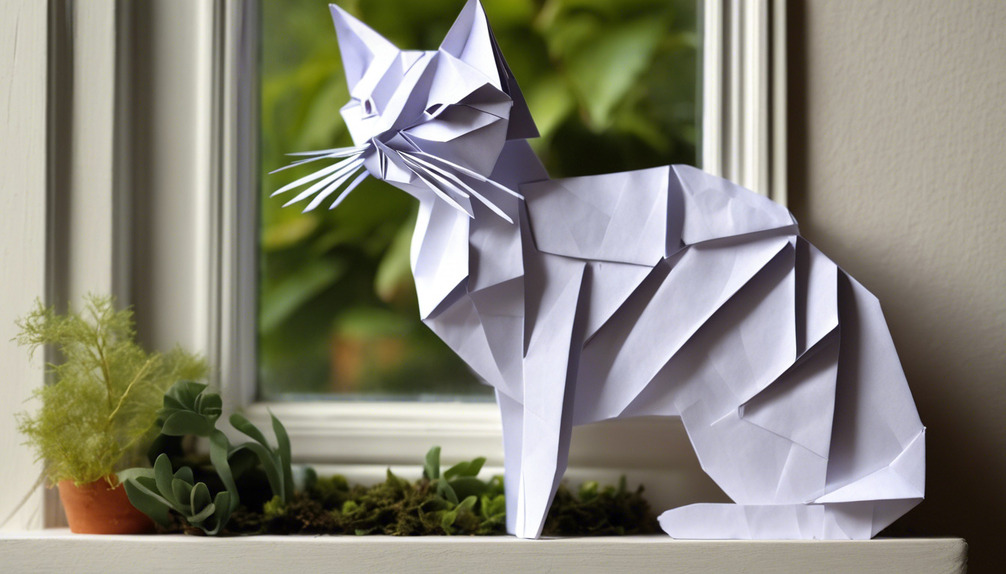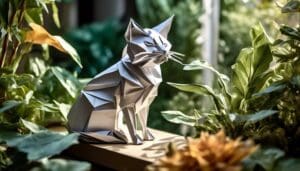As you watch your senior cat basking in the warm sunlight, you can’t help but feel a deep sense of love and responsibility for their well-being. Making homemade meals for them is a beautiful way to show your care, but there are important considerations to keep in mind to ensure their health and happiness.
From understanding their unique nutritional needs to managing any health challenges they may face, each aspect requires thoughtful attention and compassion. But fear not, as we explore these 5 essential considerations, you’ll gain the knowledge and confidence to provide the best for your beloved senior cat.
Key Takeaways
- Senior cats have specific nutritional needs, including a diet rich in high-quality animal protein, essential fatty acids, and added vitamins and minerals.
- It is important to consult with a veterinary nutritionist when preparing homemade cat food recipes tailored to senior cats.
- Aging cats may require increased high-quality animal protein and taurine for heart health and vision maintenance.
- Digestive sensitivities may develop in elderly cats, so it is important to evaluate their diet and consider commercial cat foods or a cat food delivery service.
Senior Cats’ Nutritional Needs
In meeting the nutritional needs of your senior cat, a diet rich in high-quality animal protein, essential fatty acids, and added vitamins and minerals is essential for their overall health and well-being.
As your beloved cat ages, their dietary requirements change, and it becomes increasingly important to provide them with meals that support their health. Homemade cat food recipes tailored to senior cats should focus on incorporating these vital nutrients to ensure their well-being.
Senior cats, just like humans, need a balanced and complete diet to thrive. This means their meals should contain the right combination of protein, fats, vitamins, and minerals to support their aging bodies.
When considering homemade meals for senior cats, it’s crucial to consult with a veterinary nutritionist to ensure that the recipes meet their specific nutritional needs. Raw food diets should be approached with caution, as they may not provide the complete and balanced nutrition that senior cats require.
Health Considerations for Aging Cats
As your senior cat ages, it’s crucial to consider the specific health needs that come with their advancing years. When preparing homemade meals for senior cats, it’s important to prioritize their health considerations.
Aging cats require increased high-quality animal protein to maintain muscle mass and overall health. Taurine is essential for heart health and vision maintenance, so incorporating it into homemade cat food is vital. Senior cats need adequate hydration through moisture-rich ingredients to support kidney function.
Keep a close eye on potential age-related changes in appetite and digestion, and adjust their diet accordingly. It’s advisable to consult with a veterinary nutritionist to ensure the nutritional balance of homemade diets for senior cats. Consider incorporating vitamin and mineral supplements, as aging cats may have specific requirements.
Digestive Sensitivities in Elderly Cats
Considering your senior cat’s unique health needs, it’s important to be mindful of potential digestive sensitivities as they age. Elderly cats may experience changes in their digestive system, leading to sensitivities that manifest as vomiting, diarrhea, constipation, or decreased appetite. These signs can be distressing for both you and your beloved cat.
When addressing digestive sensitivities in elderly cats, it’s crucial to evaluate their diet. While some cats may thrive on raw meat, others might find it difficult to digest as they age. Commercial cat foods, specifically formulated for senior cats, often take into account their digestive needs. As pet parents, you may also consider a cat food delivery service that offers tailored, high-quality options to support your cat’s digestive health.
Consulting with a veterinarian is essential to rule out underlying health issues and to receive guidance on potential diet changes or the addition of digestive supplements.
With careful attention to your cat’s needs, you can help alleviate digestive sensitivities and ensure they continue to enjoy their meals while maintaining optimal pet nutrition.
Managing Portion Sizes for Senior Cats
With your senior cat’s changing activity level and metabolism, adjusting their portion sizes is crucial to ensuring their health and well-being. When making homemade cat food for your senior cats, consider the following to manage portion sizes effectively:
- Adjust Portion Sizes: As your senior cat’s activity level and metabolism change, it’s important to adjust their portion sizes accordingly to meet their dietary requirements.
- Monitor Weight and Body Condition: Keep an eye on your senior cat’s weight and body condition to determine the appropriate portion sizes for their homemade diet.
- Consider Smaller, More Frequent Meals: Offering smaller and more frequent meals can aid digestion and prevent overeating in senior cats, ensuring they receive the nutritional value they need.
- Consult with a Veterinarian: It’s essential to consult with a veterinarian to determine the ideal portion sizes and feeding schedule for your senior cat, as they may have specific needs that require a balanced recipe.
As pet parents, it’s important to be mindful of portion sizes when preparing homemade cat foods for senior cats. By making adjustments based on their changing needs and consulting with professionals, you can ensure that your beloved senior cat receives the proper nutrition to support their health and well-being.
Transitioning to Homemade Diets
Switch from controlling the size of their portions to making homemade meals for your senior cat. Make sure to change their diet slowly and carefully.
Switching senior cats to a homemade diet needs careful attention and patience. Begin by slowly adding homemade food and cutting down on store-bought food to help your cat’s stomach get used to the change. Watch your cat closely for any changes in hunger, digestion, and health throughout this period.
Seek guidance from a veterinarian to ensure a proper adjustment and make any necessary recipe adjustments based on your cat’s response and preferences. It’s crucial to ensure that the homemade cat food is complete and balanced to meet your senior cat’s nutritional needs. Veterinary nutritionists can provide valuable insights into formulating balanced recipes.
Regularly assess and monitor your cat’s weight and body condition to guarantee they’re receiving adequate nutrition. Remember, health risks can arise from nutritional deficiencies or excesses, so it’s essential to avoid indiscriminate substitutions and seek professional advice when in doubt.
Your dedication to your cat’s well-being is commendable, and your pet will surely appreciate the love and care you put into transitioning them to a homemade diet.
Frequently Asked Questions
Do Vets Recommend Homemade Cat Food?
Yes, vets generally do not recommend homemade cat food due to risks of nutritional imbalances and foodborne illness. It can be risky for older cats, and those with medical conditions. Consult your vet for guidance.
How Do You Make Cat Food for Senior Cats?
When making cat food for senior cats, consider their dietary needs and consult a veterinary nutritionist. Use high-quality ingredients and follow proper food safety practices. Gradually transition your cat to homemade food, monitoring their well-being.
Is It Safe to Make Homemade Cat Food?
Yes, it’s safe to make homemade cat food if you follow vet-approved recipes and use high-quality ingredients. Gradually transition to it to avoid upsetting your senior cat’s stomach. Consult a vet for ongoing care and recommendations.
What Should Senior Cats Avoid in Food?
When preparing food for your senior cat, it’s important to steer clear of high protein, too much salt, added sugars, significant amounts of fat, and bones. These ingredients can overload their kidneys, cause heart problems, lead to weight gain, and are a choking risk.




